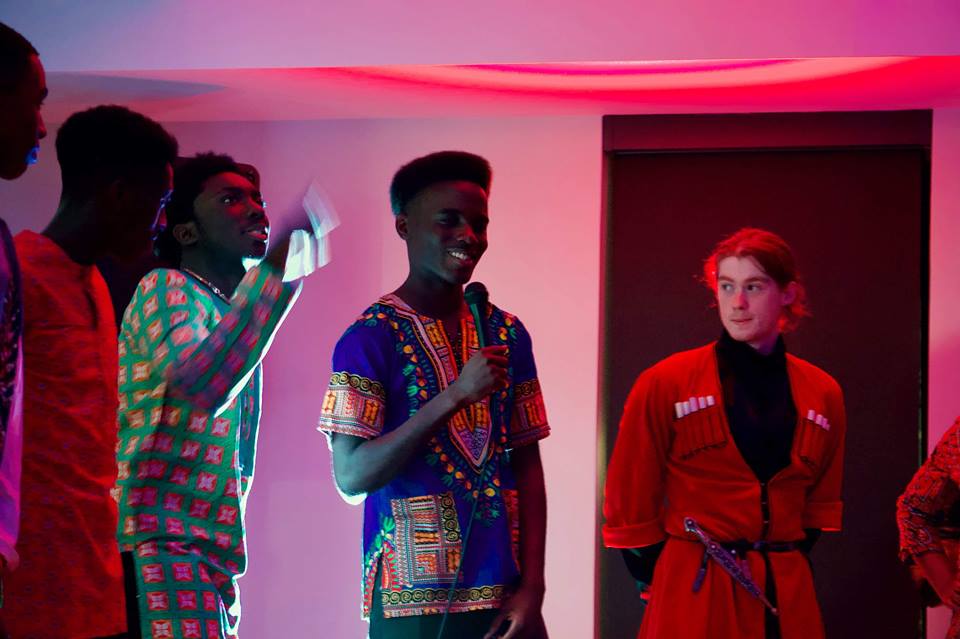Daniel Onyango
Ugandan/Kenyan born, raised in England
I’m Daniel Cliff Onyango Osuga and I identify as both Ugandan and Kenyan. My father is a member of the Luo ethnic group in Western Kenya and my mother is both a Munyankole and a Mukiga from Itendero, Sheema and Mparo, Kigezi respectively. I am very open about where I come from and enjoy visiting Uganda and Kenya as often as I can.
Whilst I would comfortably say my nationality is British, and I’m proud to have been born and raised in England, it is without a shadow of a doubt that I proudly declare that I am an African. I passionately believe that it’s important to embrace your culture and be proud of it and not shun it in favour of another culture.
Photo 1: Knowing who I am
This photograph was taken in December 2007, in Ruharo, Mbarara, Uganda. It emphasises the importance of knowing where I come from and hearing stories about the people that came before me. On this visit, our first to Africa, we were taken to places of significance to our family and met many relatives and friends of our great grandparents, some of whom are no longer alive. I am always grateful for having gone to Uganda at this time because it has allowed to me live the majority of my life knowing who I am, who my family are and where we came from.
Photo 2: Comfort zones
This photo, taken January 2008, is one of my favourite photos in the world. It was taken in the compound of the home where my mother grew up in Kyambogo, Kampala, Uganda. My brother and I are hand-washing clothes in a basin, which would surprise most of my friends in England. To be completely honest, it surprised my brother and I too when we first saw it! To me it represents us stepping out of our comfort zones and making the extra effort to immerse ourselves in a culture which we were unfamiliar with. In many respects, the lives led in Uganda are a lot simpler than the lives led in England, and I am certainly guilty of taking the privileges which we have for granted at times. Involving myself in something as small as hand-washing clothes allowed me to combat this and it really was a powerful experience.
Photo 3: Far from family
This photo was taken on Christmas Eve 2015, in Itendero, Sheema, Uganda. This was an extremely powerful and difficult moment as it was the first time my brother and I had visited our maternal grandfather’s grave. His death on Friday 28th June 2013 was a dark day in my life, made even more difficult by the fact that we were so far away from our grieving family and unable to travel to Uganda for the funeral. It was also my first experience of the death of a close family member and I really struggled to process it in the aftermath. During this grave-side visit, we lay candles, said a prayer and sprinkled some gravel on the grave as we never got a chance to bury him ourselves. I later went back a couple of days later on my own and spoke to him, just as I did when he was alive. I remember smiling as I recalled all the debates and discussions we’d had about British culture, society, history and politics during two previous trips to Uganda. This time, however, there was of course, no response, but for me it was very fulfilling and gave me some much-needed closure. This photo to me represents the importance of family and making sure you can see them as much as you can. Though circumstances are often difficult, I think one must always remember that an expensive flight will seem like nothing when they’re no longer around to speak to.
Photo 4: Culture Shock
This photo was taken in April 2018 at an Afro-Caribbean Society ‘Culture shock’ event at my school. I represented both Uganda and Kenya, giving a brief overview of the countries and explaining the meaning of my names. This photo to me represents the importance of being proud to ‘show off’ your culture and supporting people who proactively do just that. I feel that often we can fall into the trap of taking a back seat because ‘others will do it’- that’s not a good mind-set to get into and something I am constantly working on. You’ll notice that the top I’m wearing is a Dashiki (a west-African garment). I did this deliberately to show that I believe African is African and whether you’re Congolese or Zambian or Nigerian you should be able to show love and appreciation for each other however you want, my way of doing this was by wearing a West African piece of clothing whilst representing East African countries.
Take away…
All discomfort comes from suppressing your true Identity.



